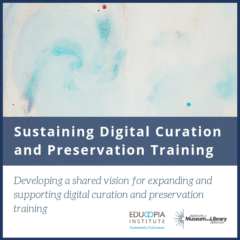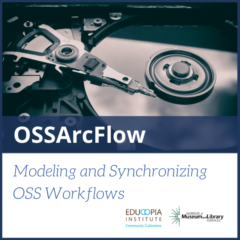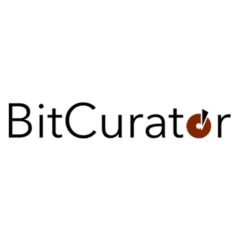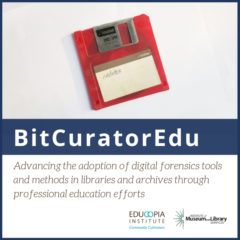The BitCurator Consortium launched in 2014 to serve as a community to sustain the ideas and tools developed in prior BitCurator grant projects. The BCC was founded through seed support from the Andrew W. Mellon Foundation, the School of Information and Library Science at the University of North Carolina, the Maryland Institute for Technology in the Humanities, and the Educopia Institute.
Between 2011 and 2014, the BitCurator project (phases 1 and 2), funded by the Andrew W. Mellon Foundation, developed, packaged and documented open-source digital forensics tools to allow libraries, archives and museums (LAMs) to meet certain digital curation goals. It also actively engaged with interested professionals through conferences, specialized events, online interactions, and site visits. These provided a strong foundation of tools and relationships upon which the BitCurator Consortium now builds.
Today, the BitCurator Consortium continues to engage in projects that support practitioners responsible for the curation of born-digital materials, especially through the application of free and open-source tools. Information about an active BitCurator Consortium affiliated project is managed through its host’s website, accessible via the sections below. Once a project is complete, the BitCurator Consortium makes decisions about which outputs from the project they might maintain or build upon, and shares news about updates related to projects that are no longer hosted by an institution.
Interested in hosting a BitCurator Consortium affiliated project? Contact us!



